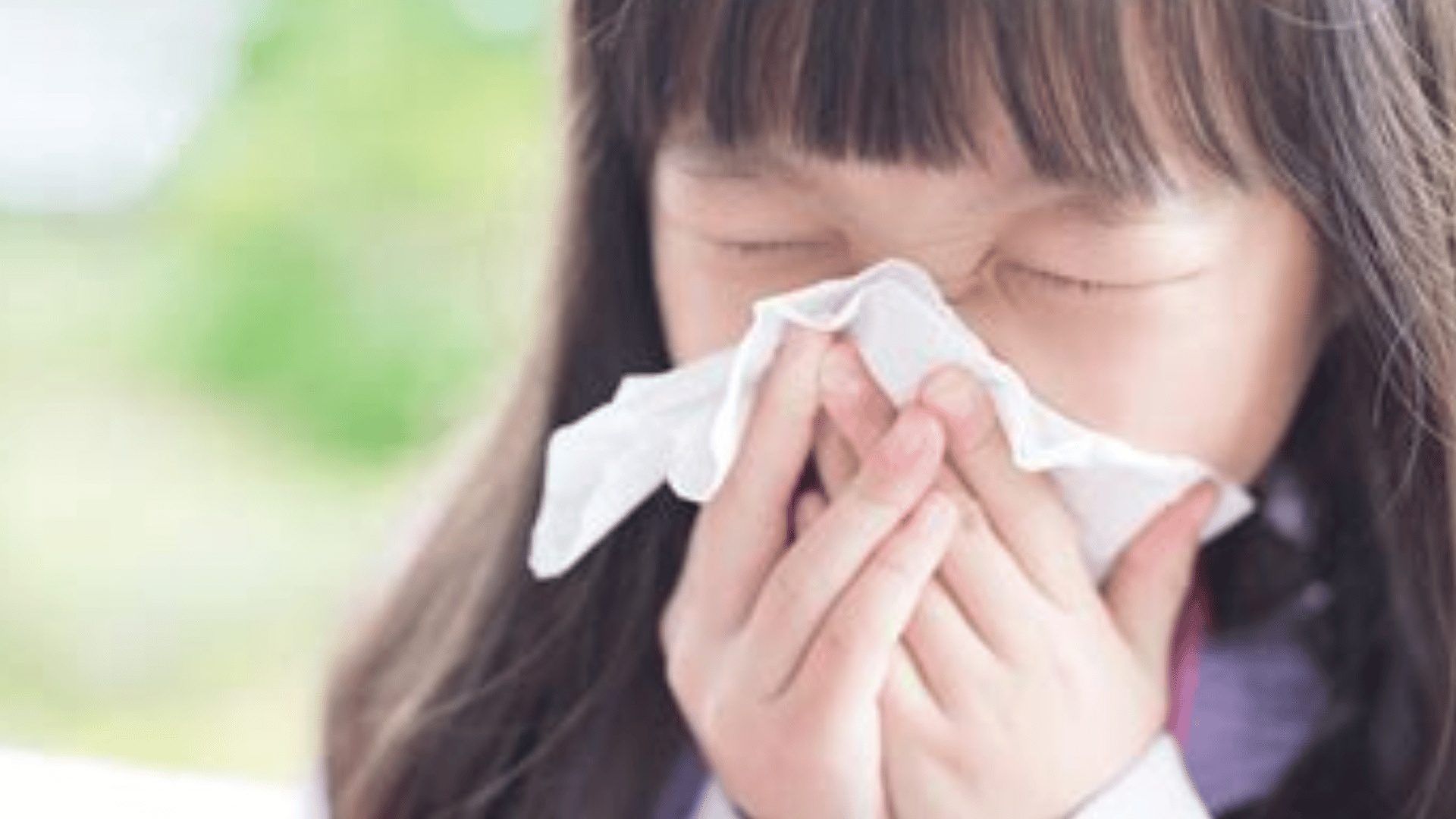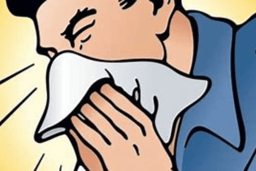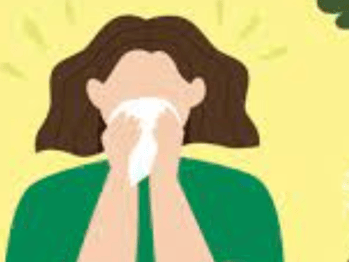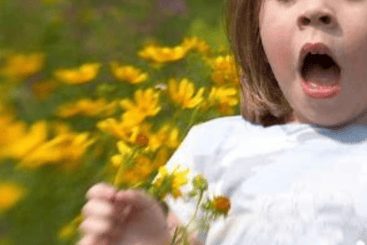
Honey : One-Time Treatment for Sneezing
Discover the power of nature with honey as a one-time treatment for sneezing. Say goodbye to sneezing with this simple remedy for nostrils and mouth. No side effects, just immediate relief.
EAR NOSE AND THROATS OTOLARYNGOLOGY
Dr Hassan Al Warraqi
Sneezing is the best one-time treatment using honey
You won't believe what happens
The honey effect on sneezing is a common natural remedy that is believed to be effective in reducing the frequency and severity of sneezes.
The idea is that when you eat local honey, you are also ingesting pollen from the local plants that trigger your allergies.
Over time, this exposure to pollen can help to desensitize your immune system and make you less sensitive to it.
There is some scientific evidence to support the honey effect on sneezing. One study found that people who ate local honey for two weeks reported a significant decrease in their allergy symptoms,
including sneezing. Another study found that honey was effective in reducing inflammation in the airways, which can also help to relieve sneezing.
To use honey for sneezing, simply take one teaspoon of honey one to three times per day.
You can eat the honey on its own, or add it to food or drinks.
If you are allergic to honey, or if you have any concerns
Here is what one person has to say about the honey effect on sneezing:
"I used to suffer from terrible allergies, and sneezing was one of my worst symptoms.
I tried everything to get relief, but nothing seemed to work. Then,
heard about the honey effect. I was skeptical at first,
but I decided to give it a try. I started taking a teaspoon of local honey every day, and within a few weeks, I noticed a big difference.
My sneezing was reduced by at least half. I'm so grateful for this natural remedy."
If you are suffering from sneezing, I encourage you to try the honey effect. It is a safe and effective remedy that can help you to get relief.
Immedite relief can occur if you use the honey this way.
Use tooth brush with honey to clean the teeth and gingival side of mouth
clean the floor of mouse and other parts mouth
Gargling and rinsing the mouth with honey
Clean both nostrils using finger with honey
put honey at closed upper eyelids
This will give immediate relief. but you can repeat this again and again endlessly as there is no side effect.no overdose of honey.
keywords
Sneezing, One time treatment , honey, nostrils, mouth.Use tooth brush with honey to clean the teeth and gingival side of mouth,clean the floor of mouse and other parts mouth,Gargling and rinsing the mouth with honey,Clean both nostrils using finger with honey,put honey at closed upper eyelids,his will give immediate relief, but you can repeat this again ,and again endlessly as there is no side effect,no overdose of honey.
Natural Ways to Stop Sneezing
Topic: An in-depth exploration of natural methods to stop frequent sneezing, its causes, and triggers, optimized for SEO.
Target Audience: Individuals seeking natural remedies for sneezing and allergies, aiming to improve their daily comfort and quality of life.
SEO Keywords: natural ways to stop sneezing, sneezing remedies, allergy relief, home remedies for sneezing, prevent sneezing, causes of frequent sneezing.
Executive Summary
Sneezing is a natural reflex to expel irritants like dust or pollen from the nose, but frequent sneezing can become disruptive, affecting daily life.
This guide, grounded in credible sources, outlines a range of natural and home-based remedies to alleviate or stop sneezing, such as using honey, steam inhalation, and nasal cleansing, alongside strategies to avoid common triggers like dust or strong odors.
While preliminary evidence supports some remedies, identifying sneezing causes and consulting a doctor remain critical for persistent cases.
Key Insights and Facts
1. The Nature and Triggers of Sneezing
Natural Defense Mechanism: Sneezing is an involuntary reflex that clears irritants like dust, pollen, smoke, or bacteria from the nasal passages to protect the respiratory system.
Source: "Sneezing is our body’s first defense against foreign bacteria, a reflex that stops on its own"
Source: "Sneezing helps clear irritants like dirt or pollen from the nose"
Common Triggers:
Environmental: Dust, pollen, mold, pet dander, perfumes.
Dietary: Spicy foods, black pepper, large meals .
External: Bright lights (photic sneezing), temperature changes, emotional stress.
Medical: Cold viruses, seasonal allergies.
Source: "Triggers include viruses, dust, pollen, bright lights" .
Specific Cases:
Photic sneezing results from sudden light exposure.
Snatiation occurs post-heavy meals due to stomach fullness.
Source: "Some people sneeze after large meals, known as snatiation"
2. Natural Remedies to Stop Sneezing
Honey:
Benefits: Relieves sneezing linked to colds or flu and helps the body adapt to environmental allergens due to its anti-inflammatory properties.
Usage: One teaspoon daily may reduce inflammation and provide instant relief. It can also be used to cleanse the mouth or nose
Evidence: Preliminary studies suggest effectiveness for seasonal allergies. A personal account noted a 50% sneezing reduction with local honey.
Cautions: Rare honey allergies may cause sneezing or swelling .
Source: "Honey prevents cold-related sneezing and may ease inflammation"
Steam Inhalation:
Benefits: Clears nasal passages, reduces runny nose, and treats cold or flu symptoms.
Method: Lean over a bowl of hot water, covering the head with a towel for effective steam inhalation.
Source: "Steam cleanses the nose and relieves congestion"
Avoiding Large Meals:
Benefits: Prevents snatiation-related sneezing by reducing stomach fullness.
Method: Eat smaller portions and take smaller bites.
Source: "Smaller meals prevent post-eating sneezing"
Tickling the Roof of the Mouth or Saying Odd Words:
Benefits: May distract from the urge to sneeze, though lacking strong scientific backing.
Method: Stimulate the palate with the tongue or recite complex words.
Source: "Palate tickling may curb sneezing, but it’s unproven"
Avoiding Bright Lights:
Benefits: Reduces photic sneezing.
Method: Wear polarized sunglasses outdoors.
Source: "Sunglasses protect against photic sneezing"
Blowing the Nose:
Benefits: Removes dust and irritants from the nose.
Method: Gentle blowing, applying lotion if irritation occurs.
Source: "Nose blowing expels irritants" .
Pinching the Nose:
Benefits: Suppresses sneezing if done just before it occurs.
Method: Pinch nostrils or below the eyebrows.
Source: "Pinching the nose may stop sneezing" .
Vitamin C and Flavonoids:
Benefits: Boosts immunity and gradually reduces sneezing by combating bacteria and allergies.
Method: Consume citrus fruits like oranges and lemons.
Source: "Vitamin C reduces sneezing over time" .
Eucalyptus Oil:
Benefits: Eases dust-allergy sneezing by clearing irritants.
Method: Inhale cautiously.
Source: "Eucalyptus oil cleanses the nose of dust" .
Nasal Rinse with Saline (Neti Pot):
Benefits: Removes mucus and allergens.
Source: "Nasal rinsing effectively reduces sneezing" .
Hydration:
Benefits: Thins mucus and eases congestion.
Source: "Drinking water supports nasal health" .
Chamomile Tea:
Benefits: Acts as a natural antihistamine, soothing symptoms.
Source: "Chamomile reduces allergies"
Spicy Foods:
Benefits: Relieves congestion with anti-inflammatory properties.
Source: "Spicy foods open the nose"
3. Prevention and Management Tips
Identify Triggers: Recognizing causes (e.g., dust, perfumes) is the first step to prevention.
Source: "Identifying triggers aids proper treatment"
Improve Indoor Air Quality: Use air purifiers, replace filters, and limit pollen exposure.
Source: "Clean air reduces sneezing" (Health).
Maintain a Clean Environment: Regularly clean homes, wash bedding in hot water, and avoid pet dander.
Source: "Cleanliness prevents irritants"
Humidify Air: Use humidifiers to prevent dry nasal membranes.
Source: "Moist air soothes the nose" .
Wear Masks: Protect the nose from environmental irritants.
Source: "Masks shield from dust"
Healthy Habits: Wash hands regularly to avoid infections.
Source: "Personal hygiene reduces sneezing" .
4. When to Consult a Doctor
Sneezing persists beyond two days.
Severely impacts quality of life.
Triggers remain unidentified.
Accompanied by concerning symptoms like breathing difficulties, persistent fever, or sinus infections.
Source: "Consult a doctor if sneezing persists or worsens" .
Follow-Up Actions
Research the efficacy of unproven remedies like palate tickling or saying odd words, which lack robust scientific support.
Emphasize medical consultation for diagnosing chronic sneezing and ruling out underlying conditions.
Raise awareness about rare honey allergies and their risks.
Conclusion
This guide offers a diverse array of natural remedies to stop sneezing, including honey, steam inhalation, and nasal rinsing, paired with strategies to avoid triggers and enhance air quality.
While some remedies are backed by preliminary evidence, identifying sneezing causes and seeking medical advice remain vital for effective management, especially in chronic or severe cases.
By adopting these approaches, individuals can reduce sneezing and enhance daily comfort.
Disclaimer: Grok is not a doctor; consult a professional if needed.
SEO Notes: The content integrates keywords like "natural sneezing remedies," "how to stop sneezing," and "nasal allergies" to boost search engine visibility while delivering rich, reader-focused insights.
Frequently Asked Questions About Sneezing and Its Natural Remedies FAQS
exploration of common questions about sneezing, its causes, and natural treatments, optimized for SEO.
Target Audience: Individuals seeking natural solutions for frequent sneezing or allergies, aiming to enhance their comfort and well-being safely.
SEO Keywords: natural remedies for sneezing, causes of frequent sneezing, nasal allergies, preventing sneezing, photic sneezing, home treatments for sneezing.
1. What Is the Mechanism of Sneezing and Why Does It Happen?
Sneezing is a natural, involuntary reflex that serves as a defense mechanism to protect the respiratory system.
When irritants like dust, pollen, smoke, or bacteria enter the nose, they agitate the sensitive nasal lining, triggering a sneeze to expel these particles and clear the airways.
It acts as the body’s first line of defense against foreign substances, preventing them from reaching the lungs.
Scientific Basis: Sneezing originates from a nerve signal sent to the brain upon nasal irritation, causing a rapid muscle contraction that forcefully expels air.
Source: “Sneezing is the body’s first defense against bacteria, a reflex that protects the nose”
Significance: It maintains respiratory cleanliness and reduces risks of infection or chronic irritation.
2. What Are the Most Common Triggers for Sneezing?
Sneezing triggers vary widely, encompassing environmental, dietary, and medical factors:
Allergens:
Pollen (from trees, grasses, flowers).
House dust mites.
Pet dander (cats, dogs).
Mold spores in damp areas.
Environmental Irritants:
Dust and smoke (including cigarette smoke).
Strong perfumes and chemicals (cleaners, paints).
Dry or polluted air.
Infections:
Viruses (common cold, flu).
Bacteria (less common).
Medications:
Nasal sprays containing corticosteroids.
Certain blood pressure or eye medications.
Foods:
Spicy foods (pepper, mustard).
Fruits like bananas or pineapples (rare allergies).
Unusual Triggers:
Bright lights (photic sneezing).
Sudden temperature or humidity changes.
Emotional stress or nervous excitement.
Source: “Triggers include pollen, dust, bright lights, and stress”
Note: Accurately identifying the trigger is key to avoiding it and effectively reducing sneezing.
3. What Are Natural Ways to Stop Frequent or Annoying Sneezing?
Several natural remedies can alleviate or stop sneezing, focusing on safe, home-based solutions:
Honey: Reduces cold-related sneezing due to its anti-inflammatory properties and helps adapt to allergies.
Steam Inhalation: Clears the nose of mucus and irritants by inhaling hot water steam under a towel.
Identify Triggers: Recognizing and avoiding causes (e.g., dust) minimizes sneezing episodes.
Stay Hydrated: Drinking 2-3 liters of water daily thins mucus, easing its expulsion.
Nose Blowing: Gently blowing the nose removes irritants, with lotion for skin if irritated.
Vitamin C: Eating citrus fruits (oranges, lemons) boosts immunity, gradually reducing sneezing.
Saline Nasal Sprays: Moisturize and cleanse the nose, safely removing dust and mucus.
Anti-Inflammatory Foods: Garlic, ginger, and turmeric open airways and ease allergies.
Source: “Natural remedies like honey and steam are effective for sneezing”
Tip: Integrating these methods into a daily routine enhances comfort and reduces reliance on medications.
4. Does Honey Help Relieve Allergy Symptoms and Sneezing? How Is It Used?
Honey is a traditional remedy with preliminary evidence supporting its role in easing seasonal allergies and sneezing:
Benefits:
Contains trace pollen, potentially helping the body build tolerance to allergens over time.
Its anti-inflammatory and soothing properties reduce nasal irritation and runny nose.
Fights bacteria linked to sneezing-related infections.
Usage:
Take one teaspoon of local honey daily, either pure or mixed with warm water.
Creative applications Apply directly to the nose, cleanse the mouth, or even place on closed eyelids for instant relief.
Repeated use is safe, with no known side effects (unless allergic).
Evidence: A personal account reported a 50% reduction in sneezing with daily honey use.
Cautions: Rare honey allergies may cause sneezing or swelling, so test a small amount first.
Source: “Honey relieves seasonal sneezing and reduces inflammation”
5. What Is Photic Sneezing and How Can It Be Managed?
Photic sneezing is an unusual condition affecting about 18-35% of people, where sneezing occurs upon sudden exposure to bright light, like sunlight:
Cause: Likely due to a nervous system glitch linking the optic nerve to the sneezing reflex nerve, often hereditary.
Symptoms: Repeated sneezing when moving from dark to light or looking at the sun.
Management:
Avoid staring directly at bright lights.
Wear polarized sunglasses when outdoors during the day.
Close eyes during sudden light exposure.
Source: “Sunglasses prevent photic sneezing” (Times of India).
Tip: If photic sneezing is frequent, consult an eye specialist to rule out other issues.
6. Can Food Be Related to Sneezing? Which Foods Might Trigger It?
Yes, sneezing can be linked to food in a condition called “gustatory rhinitis,” where certain foods provoke a nasal reaction:
Trigger Foods:
Spicy ingredients: Chili peppers, red pepper, Tabasco sauce.
Strong flavors: Onions, vinegar, mustard.
Fruits (rarely): Bananas, pineapples, kiwis (due to food allergies).
Cause: These foods stimulate nasal nerves or cause secretions that trigger sneezing.
Solutions:
Avoid spicy or pungent foods if linked to sneezing.
Eat smaller meals to reduce snatiation (sneezing after heavy eating).
Source: “Spicy foods like peppers cause gustatory sneezing” .
Note: Consulting a nutritionist can help identify specific food sensitivities.
7. When Should You Consult a Doctor About Sneezing?
Sneezing is usually temporary and harmless, but medical attention is warranted in these cases:
Sneezing persists beyond two days without improvement from home remedies.
Significantly disrupts quality of life (sleep, work, focus).
Accompanied by concerning symptoms:
Difficulty breathing or chest tightness.
Persistent fever or high temperature.
Sinus pain or severe headaches.
Trigger remains unidentified (dust, food, etc.).
Suspected chronic allergy or infection.
Source: “See a doctor if sneezing continues with serious symptoms”
Next Step: A doctor may recommend allergy tests or exams to pinpoint the root cause.
8. What Are General Tips for Preventing Sneezing Caused by Allergies?
To minimize allergy-related sneezing, follow these effective strategies:
Clean Environment:
Dust homes weekly to remove dirt and mold.
Wash bedding in hot water (60°C) to kill dust mites.
Limit pet dander by keeping animals out of bedrooms.
Improve Air Quality:
Use HEPA-filter air purifiers to trap pollen and dust.
Close windows during allergy season to block pollutants.
Optimal Humidity:
Maintain home humidity at 30-50% with humidifiers or dehumidifiers.
Avoid dry air that irritates the nose.
Avoid Triggers:
Steer clear of strong perfumes and smoke.
Wear a mask during dust exposure or cleaning tasks.
Personal Hygiene:
Wash hands and face after encountering irritants.
Shower after outdoor time to remove pollen from skin.
Source: “Hygiene and air purification reduce sneezing”
Extra Tip: Keep an allergy diary to track patterns and avoid triggers precisely.
The content incorporates keywords like “natural sneezing remedies,” “preventing allergies,” and “photic sneezing” to enhance search engine visibility, delivering detailed, reader-centric answers to meet user needs.














